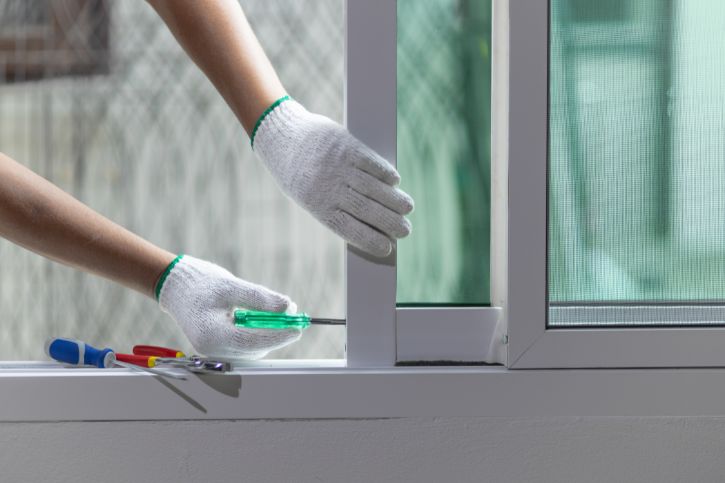When getting ready to sell your home, one question always rises to the surface: Should I make repairs before listing the house? If you’re asking yourself this, you’re not alone. It’s a smart question and a critical one.
Making repairs before listing home is more than just a cosmetic decision—it’s a strategy. A well-maintained property creates strong first impressions, encourages more offers, and can help you walk away from the closing table with more money in your pocket. Whether you’re trying to decide if patching a wall is worth it or if you should take on bigger projects, this page will guide you through the layers of that decision.
And if you’re selling in Austin—or anywhere in Central Texas—you don’t have to figure it all out alone. Robbie English, Broker and REALTOR at Uncommon Realty, brings decades of strategic experience to the table. He and his team advise sellers on what to repair and when, so every decision you make works to your competitive advantage. Robbie is also a national real estate speaker and instructor, educating real estate agents across the country on how to serve clients better. He practices what he teaches—and that means you get smarter, sharper results.
Let’s unpack the real value of making repairs before listing home.

TL;DR — Should I Make Repairs Before Listing the House?
- Yes—making repairs before listing your home can increase its market value and reduce time on the market.
- First impressions matter—buyers are drawn to well-maintained, move-in-ready homes.
- Repairs reduce buyer negotiations and improve confidence in your property.
- You must disclose known issues; fixing them can protect you legally and financially.
- Robbie English and his team at Uncommon Realty guide you through what repairs matter most—and why.
First Impressions Aren’t Optional
Buyers don’t walk into your home hoping to be convinced. They walk in ready to judge. Within seconds, they’re noticing the condition of the walls, the smell in the air, the way the floor creaks, or doesn’t. This first moment has the power to either build excitement or raise red flags.
Even before they schedule a showing, buyers are forming impressions from the online listing. Cracked tiles, peeling paint, outdated light fixtures—these are details that show up in photographs and linger in memory. When you’re selling a home, you’re not just selling space. You’re selling potential. Repairs help you communicate that potential clearly, instantly, and confidently.
Robbie English has coached countless sellers on exactly how to prepare a home for sale. The result? Listings that stand out, get shown more often, and generate serious offers. Because buyers want to feel reassured, not overwhelmed. They want to feel ready to act.
Repairs vs. Upgrades—Know the Difference
Before jumping into projects, it’s crucial to understand this: not everything that adds value is necessary to sell.
Repairs bring your home back to proper working order. They address problems—things like faulty outlets, dripping faucets, or broken door handles. They don’t need to be glamorous, but they do need to be handled.
Upgrades, on the other hand, are improvements that go above and beyond—like adding quartz countertops, redoing a bathroom, or installing new windows. Upgrades can absolutely raise your home’s value, but they’re not always required to make a strong sale.
Robbie and his team help you draw the line. They’ll walk your home with a buyer’s eye and offer candid, practical guidance about where to invest and where to leave things as-is. This clarity can save you thousands and keep your pre-listing timeline tight.
What Kinds of Repairs Make the Most Impact?
Let’s talk priorities. While every home is unique, there are a few common areas where strategic repairs really move the needle.
Start with your roof. If it’s aging, patchy, or leaking, it’s a red flag. Buyers know that a failing roof is a costly repair—and many will walk away before making an offer. Fixing minor roof issues now can prevent big losses later.
Next, take a serious look at your foundation. In Texas, foundation movement is common—but serious cracks or shifting can make buyers nervous. Hire a reputable professional to evaluate the situation. Fixing it upfront gives buyers peace of mind.
Electrical and plumbing systems should work exactly as expected. No flickering lights. No leaking sinks. No surprises during inspections. These systems are non-negotiable in terms of safety and livability.
HVAC systems also deserve attention. Have it serviced before listing. Clean filters, test thermostats, and ensure everything functions smoothly. Buyers want comfort and predictability—not a sudden A/C failure after move-in.
Cosmetic updates may seem small, but they add up quickly. A fresh coat of paint, repaired drywall, clean carpets, or updated cabinet hardware can give your home a clean, fresh feel that photographs—and shows—beautifully.
Robbie’s team has the eye and experience to help you prioritize which updates create the most impact for the least cost. You don’t need to renovate your house. You just need to present it at its best.
Repairs Can Shorten Time on Market
Homes that need work often sit. And sit. The longer a home sits, the more likely it is that potential buyers will assume something’s wrong with it—even if there’s not. Momentum in real estate matters. Strong initial interest is key.
When you take care of the essentials, your listing tells a better story from day one. It gives agents more confidence to show the home and buyers more confidence to make an offer.
That’s not speculation—it’s experience. Robbie English has helped sellers avoid months of back-and-forth, extended negotiations, and painful price reductions by addressing small issues in advance. The result? Faster closings, stronger offers, and fewer surprises after the inspection.
Fewer Repairs = Smoother Negotiations
In Texas, once a home is under contract, buyers can negotiate repairs or request financial concessions for anything uncovered during inspection. If your home has known issues, you’re more likely to be dragged into tough negotiations later on. And if you’re not proactive, you may end up giving more away than you planned.
By addressing the most obvious problems before listing, you minimize the chances of deal-threatening negotiations. You also maintain control of your pricing and avoid opening the door to low-ball offers.
Robbie English prepares his clients with a seller’s version of a pre-inspection checklist. This process—often overlooked by other agents—helps you anticipate buyer concerns before they become obstacles.
Disclosures and Legal Obligations
Texas law requires that you disclose known issues with your property. If there’s something significant that could affect the home’s value or safety, you’re obligated to share that information.
Choosing to make repairs ahead of time doesn’t just make financial sense—it helps fulfill your ethical and legal responsibilities. And if you do fix a known issue, you’ll still need to disclose that it occurred, but you can now document how it was addressed.
Warranties on repairs? Also important. When you pay for work on your home, be sure that any warranty on materials or labor is transferrable to the buyer. Provide documentation. It’s one more way to build trust—and trust builds offers.
 The Strategic Advantage of Robbie English
The Strategic Advantage of Robbie English
Selling a home isn’t just about timing the market or having a pretty front door. It’s about making smart choices, knowing which levers to pull, and avoiding the traps that slow down or devalue your listing.
That’s exactly why you should work with Robbie English and his team at Uncommon Realty. Robbie has spent decades mastering the real estate process not just as an agent but as a national speaker and instructor. He teaches other agents how to excel—but he still works directly with clients, putting his knowledge to use on your behalf.
Robbie doesn’t believe in one-size-fits-all advice. Instead, he crafts a customized strategy for every seller based on the home’s condition, market behavior, and buyer expectations. From the first walk-through to the final negotiations, Robbie’s clients are prepared, informed, and positioned to win.
When You Should Not Make Repairs
Here’s an important twist: not every home needs to be fixed up. If your property is a clear candidate for a cash sale, investor deal, or teardown, making repairs could be a waste of time and money. In those cases, pricing strategy matters far more than presentation.
That’s why getting expert guidance is critical. Robbie and his team will help you understand the best path forward based on the property’s likely buyer—and that insight saves you both money and stress.
Making Repairs Before Listing Home Is a Smart Investment
Let’s bring it full circle. If you’ve been wondering, should I make repairs before listing the house?—the answer is yes, in most situations. Making repairs before listing home typically leads to a quicker sale, better offers, and fewer negotiation headaches. It’s not about perfection. It’s about preparation.
And when you prepare well—with the right advice from the right professional—you walk into the sale with confidence and clarity. Robbie English offers exactly that.
Whether you’re just starting to consider selling or already planning your next move, reach out. Let’s talk about what your home needs—and what it doesn’t. Together, we’ll get you from “for sale” to “sold” with strategy, precision, and success.
Ready to sell smarter? Robbie English, Broker and REALTOR at Uncommon Realty, is here to make that happen. Decades of experience. National recognition. Deep market knowledge. Personalized strategy. This is real estate done right.






Leave a Reply